My Favourite Books of 2023
The annual book round-up, an update on NaNoWriMo, and why jumping into local races is a blast
Happy Sunday!
The temperatures in SLO have dropped a little and it’s reminding me that we are nearing the end of the year. With that comes the round-up I look to do each year, listing my best reads of 2023 along with those that I didn’t enjoy as much. I realize that very rarely do any two people share the exact same preferences in genres, let alone writing style, so know that while I found the below books either amazing or, for lack of a better word, less-than-compelling (and in a few examples, downright frustrating) you might have a different reading experience. I hope this list serves as a starting point for finding some new books to add to your own to-read list.
I’ll start with the best books I read this year:
Yellowface by R.F. Kuang
From the excerpt: Authors June Hayward and Athena Liu were supposed to be twin rising stars: same year at Yale, same debut year in publishing. But Athena's a cross-genre literary darling, and June didn't even get a paperback release. Nobody wants stories about basic white girls, June thinks. So when June witnesses Athena's death in a freak accident, she acts on impulse: she steals Athena's just-finished masterpiece, an experimental novel about the unsung contributions of Chinese laborers to the British and French war efforts during World War I.
The plot immediately intrigued me, but I stayed for the writing. R.F. Kuang is best known for her epic The Poppy War trilogy and while I haven’t gotten into it yet (I’m not a huge fantasy fan), she sure can write. This story is timely in today’s world. While the protagonist is, at times, unlikeable and unreliable, the novel is completely engrossing.
The Wager by David Grann
From the excerpt: On January 28, 1742, a ramshackle vessel of patched-together wood and cloth washed up on the coast of Brazil. Inside were thirty emaciated men, barely alive, and they had an extraordinary tale to tell. They were survivors of His Majesty's Ship the Wager, a British vessel that had left England in 1740 on a secret mission during an imperial war with Spain. While the Wager had been chasing a Spanish treasure-filled galleon known as "the prize of all the oceans," it had wrecked on a desolate island off the coast of Patagonia. The men, after being marooned for months and facing starvation, built the flimsy craft and sailed for more than a hundred days, traversing nearly 3,000 miles of storm-wracked seas. They were greeted as heroes.
But then . . . six months later, another, even more decrepit craft landed on the coast of Chile. This boat contained just three castaways, and they told a very different story. The thirty sailors who landed in Brazil were not heroes - they were mutineers.
I loved Grann’s prior work, Killers of the Flower Moon, so was highly anticipating his latest book. Plus, I love tales about piracy, so this was a hit before I even opened the first page. I find Grann to be a wonderful storyteller, despite his work as a non-fiction writer. I highly recommend reading this, especially if you need a break from fiction but still want the excitement it can bring.
Kick the Latch by Kathryn Scanlan
Kathryn Scanlan’s Kick the Latch vividly captures the arc of one woman’s life at the racetrack—the flat land and ramshackle backstretch; the bad feelings and friction; the winner’s circle and the racetrack bar; the fancy suits and fancy boots; and the “particular language” of “grooms, jockeys, trainers, racing secretaries, stewards, pony people, hotwalkers, everybody”—with economy and integrity.
I stumbled upon this book at a local bookstore in Pasadena, CA. It had been recommended by one of the employees, who had simply written “READ IT!”. I had little idea of what to expect when I began, and I’m almost glad about that. It took me a few pages to understand what was happening and whose voice I was reading, but the writing was captivating from the start. I’ll admit, the subject matter can be hard at times, because people involved in the horse racing industry often have hard lives. But still, pick up this book. You won’t regret it.
Forager: Field Notes for Surviving a Family Cult by Michelle Dowd
From the excerpt: Michelle Dowd grew up on a mountain in the Angeles National Forest, born into an ultra-religious cult—the Field, as members called it—run by her grandfather, who believed that his chosen followers must prepare themselves to survive doomsday. Bound by the group’s patriarchal rules and literal interpretation of the Bible, Michelle and her siblings lived a life of deprivation, isolated from Outsiders and starved for both love and food. She was forced to learn the skills necessary to battle hunger, thirst, and cold; she learned to trust animals more than humans; and most important, she learned how to survive by foraging for what she needed. And as Michelle got older, she realized she had the strength to break free. Focus on what will sustain, not satiate you , she would tell herself. Use everything. Waste nothing. Get to know the intricacies of the land like the intricacies of your body. And so she did.
I love reading about areas that I am at least somewhat familiar with, often because I can imagine the protagonist moving through their world in a deeper sense. This was true when I picked up Dowd’s book, but I stayed for how she interwove her tragic upbringing with the knowledge she gleaned from her family about how to survive in the natural world. Her writing is beautiful, too.
I can’t fit all of my favourites into this post, so here’s a list of a few more books I loved this year:
Tomorrow and Tomorrow and Tomorrow by Gabrielle Zevin
Go as a River by Shelley Read
The Art Thief by Michael Finkel
Mother-Daughter Murder Night by Nina Simon
A Heart That Works by Rob Delaney
Lady Tan’s Circle of Women by Lisa See
Chocky by John Wyndham
Now for the more controversial part of this…my least favourites.
Everything All At Once by Steph Catudal
From the excerpt: When Steph Catudal met her husband Rivs, she thought that the love, stability, and warmth she shared with her husband had finally dispelled her pent-up anger and grief over the loss of her father and her faith. But when Rivs became ill and was put into coma at the height of the pandemic, the painful memories of her childhood—watching her father die of cancer—came flooding back. Written with lush lyricism, Steph’s account of how this crisis forced her to confront her past is raw, illuminating, and her father’s death that wrecked her faith in God and jumpstarted a decade of rebellion, including running away from home and living out of a van at age 16, struggling with alcoholism, and delving into drugs to ease her pain. Sitting by Rivs's bedside, she grappled with the memories of the past and the uncertainties of the future while reckoning with the unknowns of her husband’s illness. Rivs would endure a grueling 84 days in a medically induced coma, eventually undergoing chemo for a similar illness that stole her father.
This book has exceedingly high ratings on Goodreads–4.29/5. Goodreads ratings aren’t everything, but it does show how loved this book and/or Steph Catudal and her husband, Tommy Rivs, are in general. I have a few friends who adored this book and love her writing, but I admit to struggling with it. I found that the themes of the book became murky, in part because there’s too much happening and the reader is jarred between Rivs’ tragic cancer diagnosis/consequent suffering and Catudal’s past. This includes the loss of her father (also from cancer), as well as her struggle with alcohol, drug addiction, and her Mormon faith. It’s a lot. My biggest grievance with her book, however, is the writing itself. I just don’t connect to it and found that, while lyrical, many of her sentences didn’t make sense. I wanted to ask but what are you saying?! many times. Take this, for example:
“You smiled the kind of smile that both excavates and buries—an enigmatic calamity that either suffocates or brings us up as something new.”
I don’t know what she actually means. To me, it comes across like she’s trying too hard to sound poetic. Like this:
“There is so much awareness in the interim, so much held in between. In this staccatoed knowing that echoes infinitely, life and death are not worlds apart. They are a chorus with no beginning and no end, each of them bending inward like time, undeniably and inextricably linked. I can finally hear it. In the melody of eternity, life and death are simply fermatas to an infinite refrain.”
Lyrical, but extremely vague and overwritten. I wish that the editor had either cut these parts or asked Catudal to be more specific in her word choices and imagery. To me, it came across as trying too hard. I realize I’m likely in the minority on this one but wanted to share my thoughts in case you want to read her book and decide for yourself.
Class by Stephanie Land
From the excerpt: Class paints an intimate and heartbreaking portrait of motherhood as it converges and often conflicts with personal desire and professional ambition. Who has the right to create art? Who has the right to go to college? And what kind of work is valued in our culture? In clear, candid, and moving prose, Class grapples with these questions, offering a searing indictment of America’s educational system and an inspiring testimony of a mother’s triumph against all odds.
Here goes: this book seems to have the opposite approach to what the excerpt explains. I read Land’s first book, Maid, and enjoyed the television series based on her book. However, her latest work is more aggressive and even off-putting. In Class, Land doesn’t seem to answer the questions posed in the excerpt so much as take readers on her struggles through her undergraduate years as a single mother living in poverty with a young child (and, eventually, another one on the way.) It feels unfair to judge the choices she makes in her memoir because I haven’t experienced poverty, but I found myself confused about many of the actions she takes, especially because she holds a grudge against anyone who does not or simply cannot help her due to the circumstances of their own lives. The writing is clear and engaging, which makes the book very readable, but I found myself frustrated with the author by the final chapters.
Finally, here’s a list of books I’m eager to read in the new year:
Mercury by Amy Jo Burns
Mother, Nature: A 5,000-Mile Journey to Discover if a Mother and Son Can Survive Their Differences by Jedidiah Jenkins
The Rachel Incident by Caroline O’Donoghue
We Were Once A Family: A Story of Love, Death, and Child Removal in American by Roxanna Asgarian
NaNoWriMo
To be honest, I would have loved to have spent more time reading this past month, but a lot of my reading time has been taken up by NaNoWriMo, which I guess is a fair trade. I’m on the final stretch now and despite a few hiccups in the last seven days (ie, skipping a day or two), managed to double the next day and stay on track.
Training
After a solid month of training with some peak mileage, I’m beginning to taper into a fun project in early December. It’s definitely a stretch goal, and I’m not sure I will succeed, but that also leaves room for growth since it’s going to force me to push hard. Expect a recap of that event, no matter how it goes!
This is definitely the longest duration in which I’ve sustained this volume, but things are feeling great and I feel solid about my coach’s approach and how she’s managing my training.
On Thanksgiving, Nick and I jumped into a local 5K and both surprised ourselves with our finishing time. I encourage you to find a local race, especially with a distance you don’t normally run and/or are intimidated by and join in. It’s amazing how much faster you can often run when you’re surrounded by others and it’s rewarding to know, especially as an ultrarunner, that you can develop a different gear.
Wishing everyone a great week and thank you for reading. I would love to know what books you most enjoyed (or had a hard time finishing) in the comments. I’m always eager to add more books to my list!



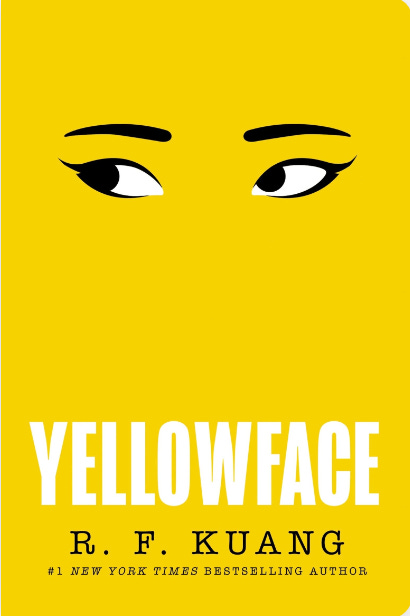
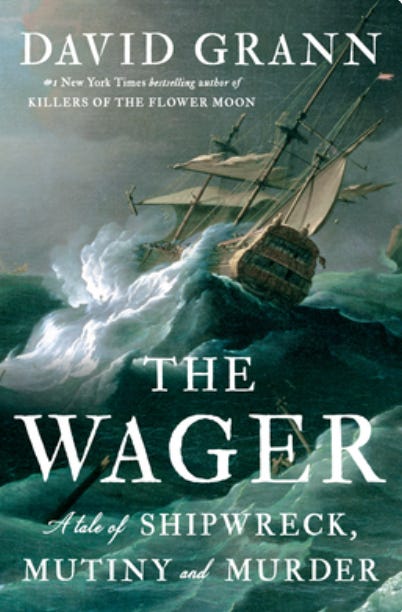
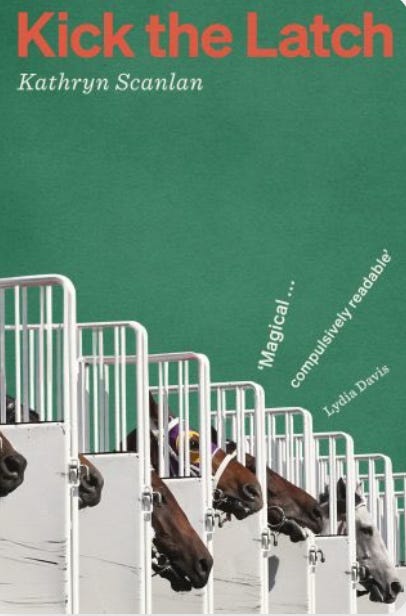
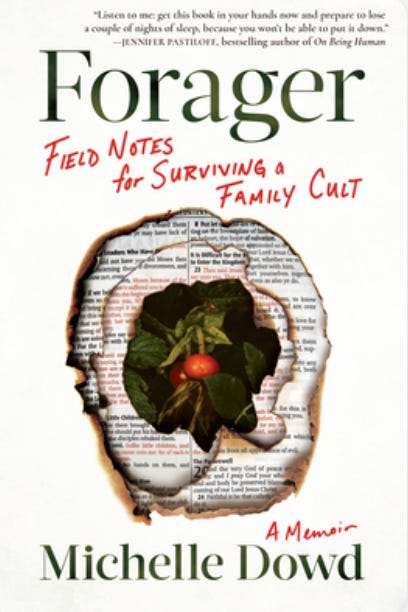
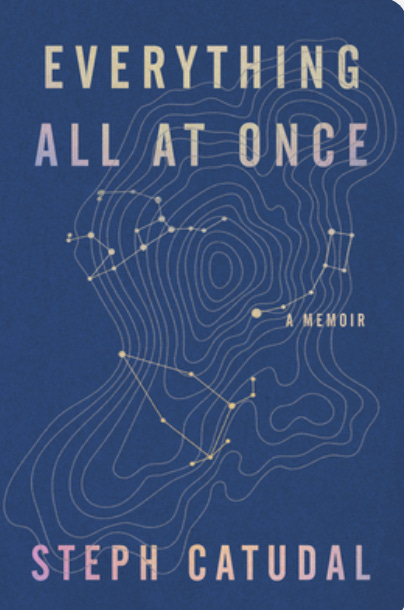
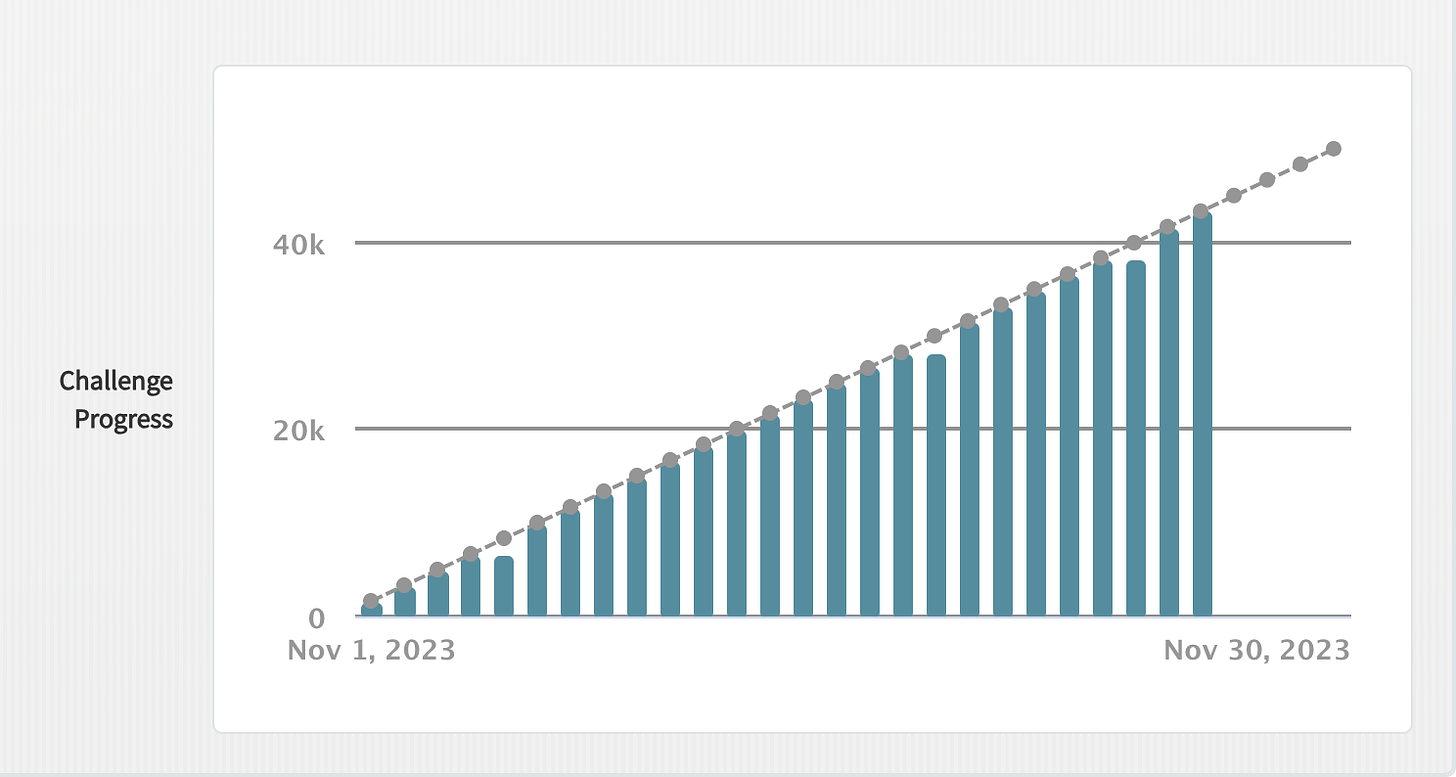
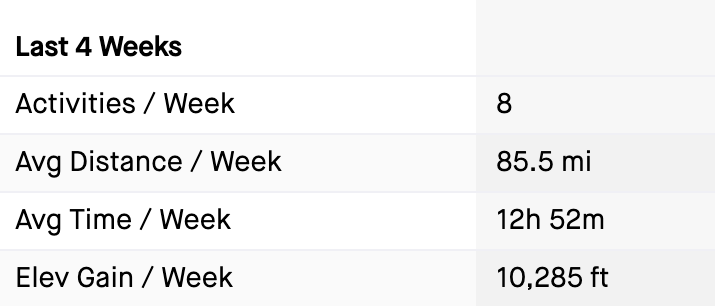
I enjoyed reading your recs ... are you on Goodreads? We should connect there. I too was captivated by Yellowface. And thank you for your honest review of Steph's memoir. I had been curious to read it but a bit put off by her style of writing in her Instagram captions (overwrought and difficult to follow). I applaud anyone who can write a memoir or any book, but I agree with your critique.
BTW I will do a roundup of my 2023 books in my newsletter in a couple of weeks.